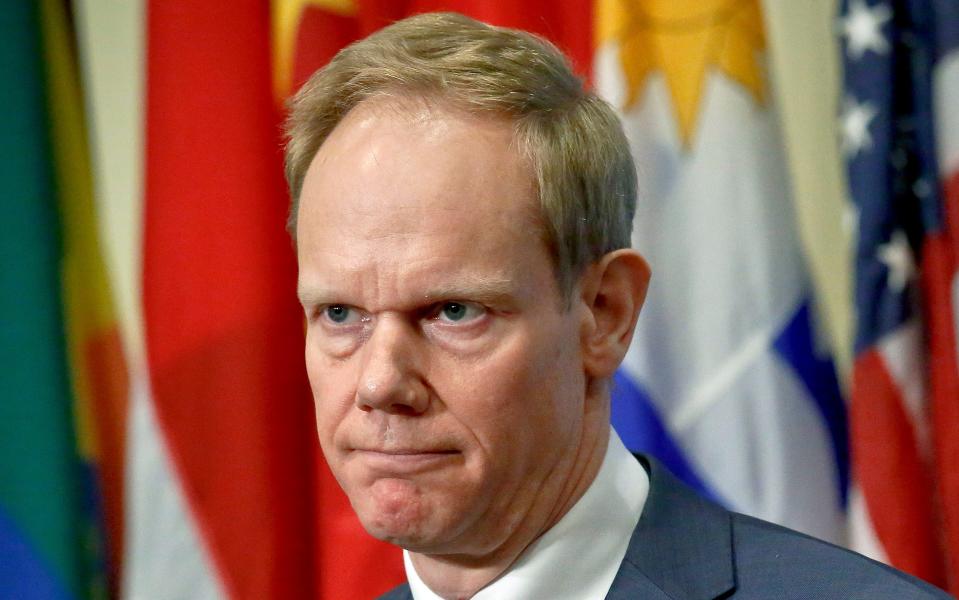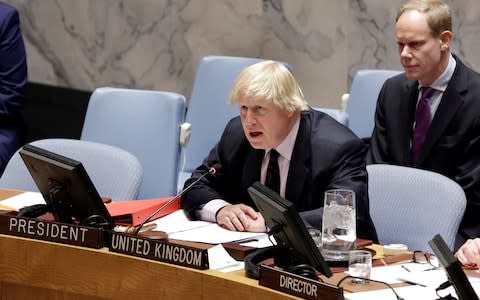Criticism of foreign aid as wasteful and 'corrupt' is valid, admits department's top civil servant

Public criticism of foreign aid spending as "corrupt" and wasteful is "valid", the civil servant in charge of the International Development department has admitted.
Matthew Rycroft, Dfid’s Permanent Secretary, also suggested that politicians are out of touch with ordinary people by not being more sceptical about the aid budget.
Dfid is so concerned that it is trialling a new programme which involves British aid workers telling their own stories in local papers about the value of their aid work.
Mr Rycroft told the Civil Service World website that opinion is split three ways on aid: those who will never support aid abroad; those who support the current approach; and those, which Mr Rycroft estimated at about a third of the population, who are open to persuasion but not convinced.
He said: “When you ask them why not, they say they don’t think it works – the scale of the problems are too big so no matter how much we do, we will never solve them.
“Or they think the whole thing is corrupt and money never ends up where it should. Those are both valid criticisms and we need to address them.”

The Government is legally committed to spending 0.7 per cent of national income on aid. This works out as around £14billion a year, of which £10billion is spent by Dfid and another £4billion by other departments.
Last year the House of Commons' financial watchdog said Government’s claims of low levels of fraud in Britain’s overseas aid budget did not seem credible given mounting evidence of missing money.
Mr Rycroft, a former British ambassador to the United Nations who became Dfid permanent secretary in January, said he had been struck by the disconnect between all the political parties and the public on the spending target.
He said: “Coming back and starting the job, you realise that although all the main political parties agree about the 0.7 per cent commitment, actually the British people have very varied views about it, and there is a lot of scepticism about international development.
“One of the big challenges of this job is to do an even better job of communicating to the British people why it is the right thing to do to be spending all this money on foreign aid.”
Officials are currently evaluating the Art Works scheme in the west Midlands which encourages local people who have worked on aid project to talk about their work.
He said “What we’ve done so far is connect people in that region with aid workers who are returning from deploying in an emergency medical team, or other voices that will have resonance, and trying to get those individual stories about what British aid has been doing in their name.”

Mr Rycroft said Dfid had to live with the additional scrutiny that came from being such a high profile, high spending department.
He said: “There’s a lot of scrutiny of the department, I think particularly in recent years since the 0.7 per cent became achieved and legislated for, and as we went up to 0.7 per cent when there was a very significant increase in the aid budgets every year. Rightly that brought significant additional oversight from parliament and the media.
“Now that we’ve achieved the 0.7 per cent target, the aid budget goes up only to the extent the British economy goes up.
“But I think it would be fair to assume there will be a high degree of scrutiny continuing, and so there should. We have to make sure that we are able to live with that scrutiny and use that to drive us to ever better performance.”
Asked if this affected morale in the department’s offices, he added: “There have been difficult times for the department, and some of the reputational risk that we carry is a burden.
“But people passionately believe in the mission of the department and are determined to do a better job of explaining to the British people why we do that.”

 Yahoo News
Yahoo News 